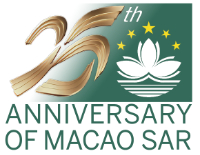Hundreds of professionals from Hong Kong and Macao special administrative regions have obtained practicing certificates to work on the Chinese mainland, following an implementation plan to promote the evaluation of professional titles and recognition of professional qualifications in the Guangdong-Hong Kong-Macao Greater Bay Area.
Guangdong, an economic powerhouse in South China, has been advancing the recognition of professional qualifications in fields such as doctors, teachers, tour guides and lawyers and expanding mutual recognition of professional certificates in the construction sector, according to the Guangdong Human Resources and Social Security Department.
READ MORE: Forum brings nations closer to mainland
 As of November, 4,907 professionals from the two special administrative regions have obtained practicing certificates to work on the Chinese mainland, according to data from the provincial human resources authorities.
As of November, 4,907 professionals from the two special administrative regions have obtained practicing certificates to work on the Chinese mainland, according to data from the provincial human resources authorities.
Guangdong issued an implementation plan to promote the evaluation of professional titles and recognition of professional qualifications in the Greater Bay Area in 2019, aiming to promote the comprehensive and open evaluation system of professional titles and advance the recognition of professional qualifications in various fields.
In the latest move, a first batch of 49 eligible Hong Kong and Macao tax professionals have obtained their practice certificates to start their careers in the Guangdong-Macao In-Depth Cooperation Zone in Hengqin, Zhuhai, starting from Nov 1.
They have become a "new example" of the facilitation of cross-border professional practice in the Greater Bay Area, according to the Guangdong provincial taxation authorities.
"I am very honored to be one of the first Hong Kong and Macao tax professionals to practice in Hengqin. In the future, I will strive to further involve the Macao accounting industry in the development of the cooperation zone," said Iong Weng-ian, president of the Union of Associations of Professional Accountants of Macao.
Promoting cross-border facilitation of personnel between the Chinese mainland and Hong Kong and Macao was also included in the Outline Development Plan for the Guangdong-Hong Kong-Macao Greater Bay Area, issued in 2019.
The overall plan for the construction of the Guangdong-Macao In-Depth Cooperation Zone in Hengqin, issued in 2021, also specifies that relevant foreign professionals with qualifications from places like Macao are allowed to provide services in the cooperation zone after filing, subject to industry regulatory requirements.
According to measures issued recently by the Guangdong Provincial Taxation Bureau of the State Taxation Administration for the practice management of Hong Kong and Macao tax professionals in the in-depth cooperation zone, qualified Hong Kong and Macao tax professionals can register with the Guangdong taxation authorities to engage in tax-related professional services in the cooperation zone.
According to the measures, Hong Kong and Macao tax professionals who have registered for practice in Hengqin must join tax professional service institutions registered in the in-depth cooperation zone.
ALSO READ: Xi commends Macao's achievements
Furthermore, the conditions for qualified Hong Kong and Macao tax professionals to establish tax firms stipulate that they should become shareholders or partners in tax firms and get verification from the authorities to establish an information-sharing mechanism with the Taxation Institute of Hong Kong and the Macao Society of Certified Public Accountants.
"Over the past three years since its establishment, we have been addressing the issue of Macao's professional talent gaining access to practice in Hengqin," said Su Kun, deputy director of the executive committee of the Guangdong-Macao In-Depth Cooperation Zone in Hengqin.
By resolving the issue of cross-border access and operation, the zone has introduced special policies to encourage more Macao professional talent to develop cross-border practices in the cooperation zone, according to Su.
Currently, the number of cross-border professions in the cooperation zone has significantly increased, expanding to 8 categories with over 1,300 professionals, according to Su.


